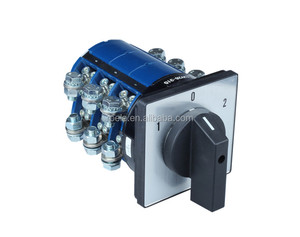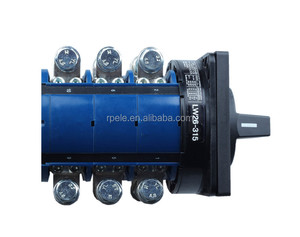Introduction to Rotary Selector Switch 3 Position
The rotary selector switch 3 position is a versatile and essential component used in various electrical applications. Designed to operate by rotating a knob or lever to select between three distinct positions, this switch is widely employed in machinery, appliances, and instrument panels. Its simplicity and reliability make it a popular choice in both commercial and industrial settings.
Types of Rotary Selector Switch 3 Position
Understanding the different types of rotary selector switch 3 position can greatly assist in selecting the right one for your needs. Here are the key types:
- Standard Rotary Selector Switch: The most common type used for simple applications.
- Illuminated Rotary Selector Switch: Features built-in LEDs to indicate the switch position, enhancing visibility.
- Key-operated Rotary Selector Switch: This type requires a key to operate, adding a layer of security for sensitive applications.
- Sealed Rotary Selector Switch: Designed to prevent environmental contaminants, making it ideal for use in harsh conditions.
Function, Feature, and Design of Rotary Selector Switch 3 Position
The rotary selector switch 3 position offers a range of functions and features that enhance usability and design. Some notable aspects include:
- Functionality: Each position on the switch corresponds to a specific function, allowing efficient control over a machine or system.
- Easily Recognizable Positions: The switch commonly uses clear markings or symbols to denote each position, ensuring ease of use.
- Durable Design: Made with high-quality materials, rotary selectors are built to withstand wear and operable in demanding environments.
- Compact Size: Their design often allows for space-saving installation while maintaining robust functionality.
- Versatile Applications: Suitable for various devices ranging from consumer electronics to industrial machinery.
Applications and Advantages of Rotary Selector Switch 3 Position
The rotary selector switch 3 position is used across various industries with numerous benefits, including:
- Industrial Equipment: Commonly found in control panels for machines, providing straightforward operation.
- Home Appliances: Used in devices such as washing machines and coffee makers to select functions clearly.
- Electric Cars and Models: Allows users to switch between driving modes effectively.
- Advantages:
- Improved User Experience: Intuitive design enables users to switch functions quickly and easily.
- Reliability: Ensures consistent performance due to robust construction.
- Easy Maintenance: With straightforward configurations, these switches require minimal upkeep.
- Enhanced Safety: Reduces the risk of accidental activation, particularly important in complex machinery.





















